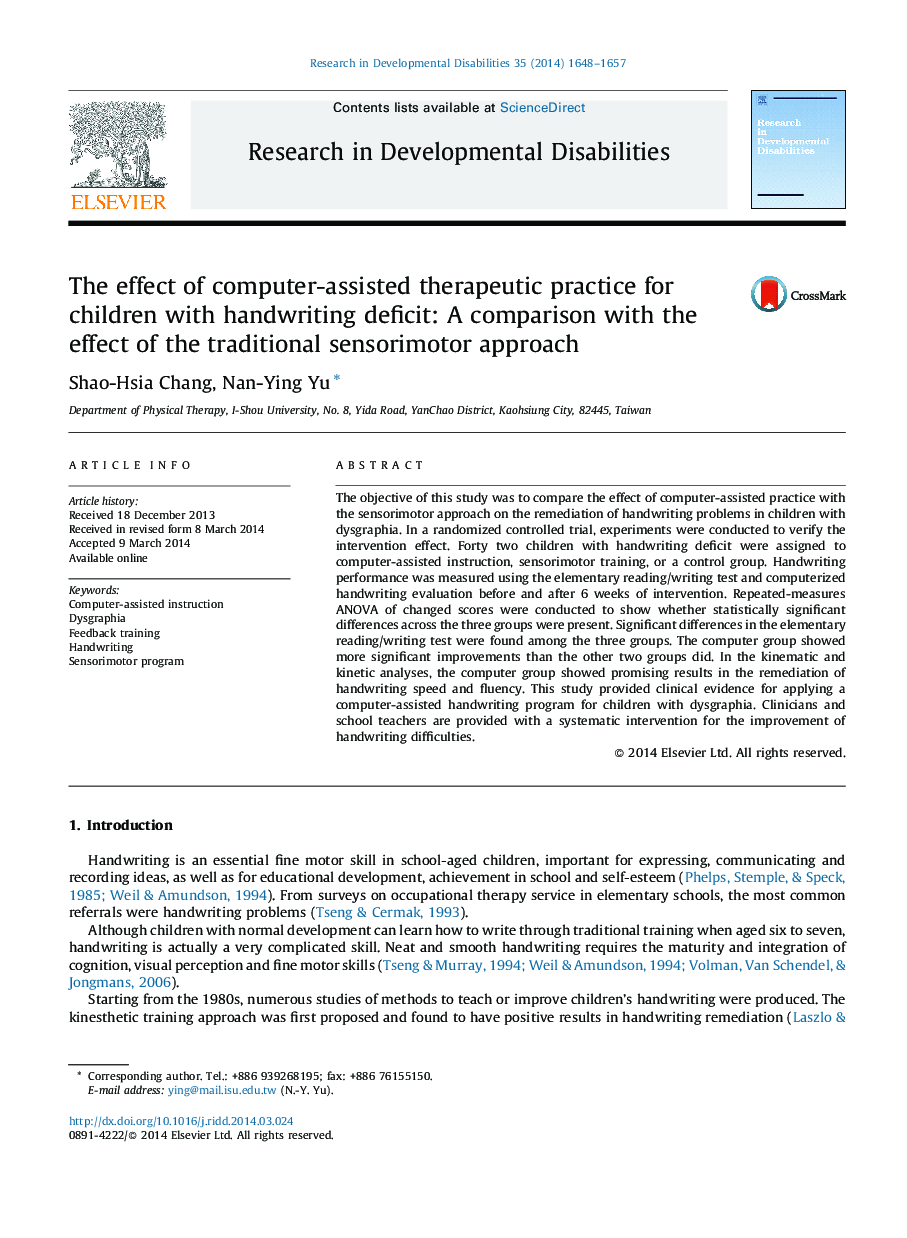| Article ID | Journal | Published Year | Pages | File Type |
|---|---|---|---|---|
| 10317241 | Research in Developmental Disabilities | 2014 | 10 Pages |
Abstract
The objective of this study was to compare the effect of computer-assisted practice with the sensorimotor approach on the remediation of handwriting problems in children with dysgraphia. In a randomized controlled trial, experiments were conducted to verify the intervention effect. Forty two children with handwriting deficit were assigned to computer-assisted instruction, sensorimotor training, or a control group. Handwriting performance was measured using the elementary reading/writing test and computerized handwriting evaluation before and after 6 weeks of intervention. Repeated-measures ANOVA of changed scores were conducted to show whether statistically significant differences across the three groups were present. Significant differences in the elementary reading/writing test were found among the three groups. The computer group showed more significant improvements than the other two groups did. In the kinematic and kinetic analyses, the computer group showed promising results in the remediation of handwriting speed and fluency. This study provided clinical evidence for applying a computer-assisted handwriting program for children with dysgraphia. Clinicians and school teachers are provided with a systematic intervention for the improvement of handwriting difficulties.
Related Topics
Life Sciences
Neuroscience
Behavioral Neuroscience
Authors
Shao-Hsia Chang, Nan-Ying Yu,
